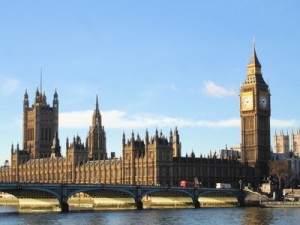Bribery Act & Proceeds of Crime - Written by Barry & Richard on Monday, June 25, 2018 7:02 - 0 Comments
Roll up, roll up…House of Lords Bribery Act Committee calls for evidence on Bribery Act & Deferred Prosecution Agreements
 The House of Lords has begun a wide review of the Bribery Act which will also encompass the impact of Deferred Prosecution Agreements. Noting that “a number of cases have already reached the Court of Appeal” the House of Lords Committee webpage notes that “Now is an opportune moment for post-legislative scrutiny”and cites the areas the review will look into as being:
The House of Lords has begun a wide review of the Bribery Act which will also encompass the impact of Deferred Prosecution Agreements. Noting that “a number of cases have already reached the Court of Appeal” the House of Lords Committee webpage notes that “Now is an opportune moment for post-legislative scrutiny”and cites the areas the review will look into as being:
- The effectiveness of the Act;
- Whether there has been stricter prosecution of corrupt conduct, a higher conviction rate, and a reduction in such conduct;
- The impact of the Act on SMEs;
- Deferred Prosecution Agreements in relation to bribery
Chair of the Committee Lord Saville of Newdigate said:
“Concerns over whether the Bribery Act 2010 is effective need to be examined now. The Committee seeks to assess the effectiveness of the legislation and the impact it is having, as nearly all corrupt conduct is now prosecuted under it. The Committee will welcome submissions from people, organisations or businesses with experience of the Bribery Act 2010, and urges any persons and bodies that would like to be involved to send us their views.”
The Committee members are:
| Member | Affiliation |
| Lord Saville of Newdigate (Chairman) | Crossbench |
| Lord Empey | Ulster Unionist Party |
| Baroness Fookes | Conservative |
| Lord Gold | Conservative |
| Lord Grabiner | Crossbench |
| Lord Haskel | Labour |
| Lord Hodgson of Astley Abbotts | Conservative |
| Lord Hutton of Furness | Labour |
| Lord Plant of Highfield | Labour |
| Baroness Primarolo | Labour |
| Lord Stunell | Liberal Democrat |
| Lord Thomas of Gresford | Liberal Democrat |
The Committee has established the following specific questions and the deadline for responses is Tuesday 31 July 2018.
Deterrence
- Is the Bribery Act 2010 deterring bribery in the UK and abroad?
Enforcement
- Is the Bribery Act 2010 being adequately enforced? If not, how could enforcement be improved? Do the Serious Fraud Office and the Crown Prosecution Service have the right approach and the resources they need to investigate and prosecute bribery offences effectively?
Guidance
- Is the statutory guidance on the Bribery Act 2010 sufficient, clear and well-understood by the companies and individuals who have to deal with it? Should alternative approaches be considered?
Challenges
- How have businesses sought to implement compliance programmes which address the six principles set out in the Ministry of Justice’s guidance on the Bribery Act 2010? What challenges have businesses faced in seeking to implement their compliance programmes? Are there any areas which have been particularly difficult to address?
- What impact has the Bribery Act 2010 had on small and medium enterprises (SMEs) in particular?
- Is the Act having unintended consequences?
Deferred Prosecution Agreements
- Has the introduction of Deferred Prosecution Agreements (DPAs) been a positive development in relation to offences under the Bribery Act 2010? Have DPAs been used appropriately and consistently? Has their use reduced the likelihood that culpable individuals will be prosecuted for offences under the Act?
International aspects
- How does the Bribery Act 2010 compare with anti-corruption legislation in other countries? Are there lessons which could be learned from other countries?
- What impact has the Bribery Act 2010 had on UK businesses and individuals operating abroad?
If you have comments on the review, or its questions, then let us know, we’re planning to submit a response and it would be great to hear views.


